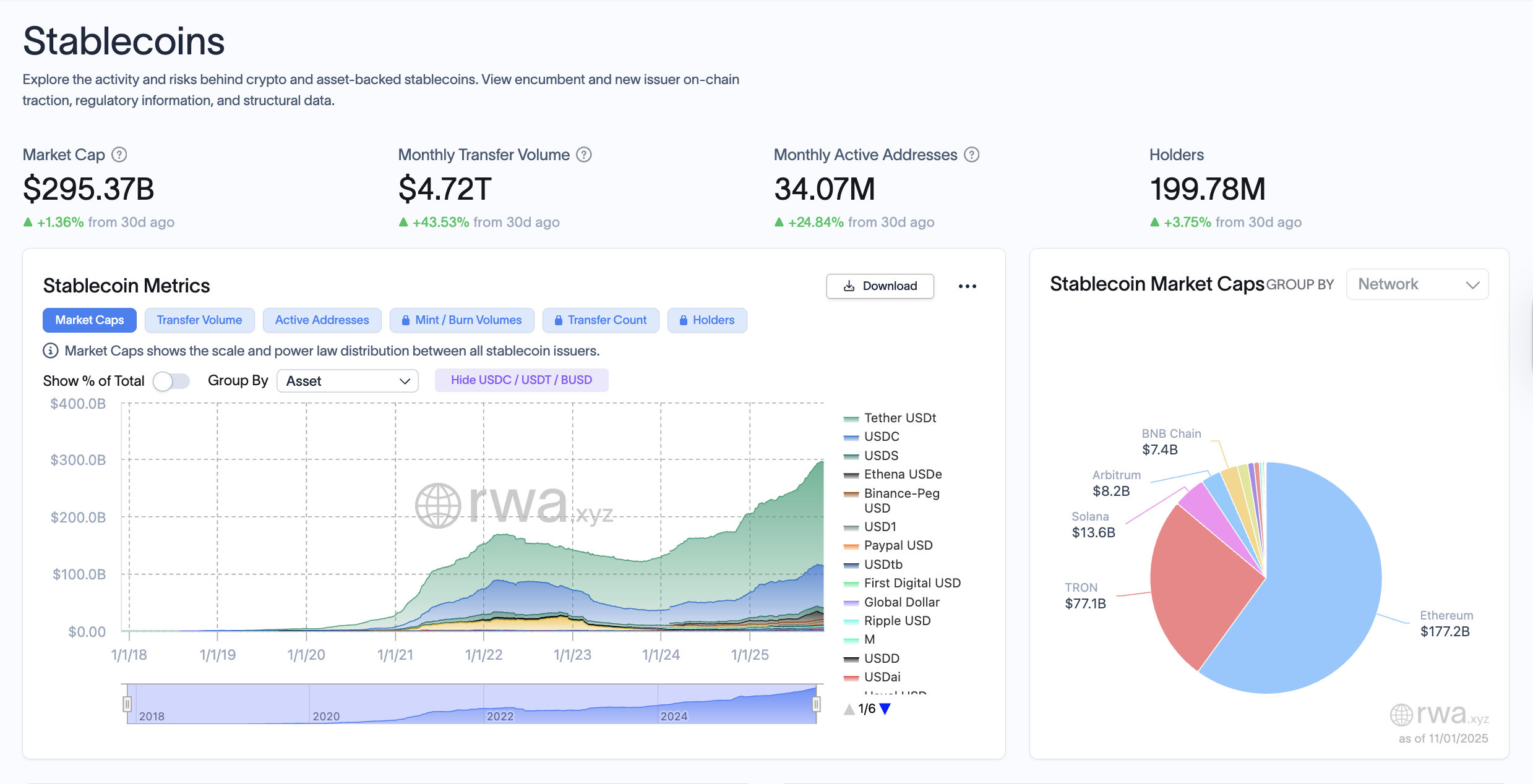Columbia Business professor casts doubt on tokenized bank deposits
Banks and financial institutions have started experimenting with tokenized bank deposits, bank balances recorded on a blockchain, but the technology is doomed to lose out to stablecoins, according to Omid Malekan, an adjunct professor at Columbia Business School.
Overcollateralized stablecoin issuers, who must maintain 1:1 cash or short-term cash equivalent reserves to back their tokens, are safer from a liability perspective than the fractional reserve banks that would issue tokenized bank deposits, Malekan said.
Stablecoins are also composable, meaning they can be transferred across the crypto ecosystem and used in various applications, unlike tokenized deposits, which are permissioned, have know-your-customer (KYC) controls, and have restricted functionality.

Tokenized bank deposits are like a “checking account where you could only write checks to other customers of the same bank,” Malekan continued. He added:
“What’s the point? Such a token can’t be used for most activities. It’s useless for cross-border payments, can’t serve the unbanked, doesn’t offer composability or atomic swaps with other assets, and can’t be used in decentralized finance (DeFi).”
The tokenized real-world asset (RWA) sector, physical or financial assets tokenized on a blockchain, which includes fiat currencies, real estate, equities, bonds, commodities, art, and collectibles, is projected to swell to $2 trillion by 2028, according to the Standard Chartered bank.
Related: BNY explores tokenized deposits to power $2.5T daily payment network: Bloomberg
Stablecoin issuers will share yield one way or another
Tokenized bank deposits must also compete with yield-bearing stablecoins or stablecoin issuers that find ways of circumventing the yield prohibition in the GENIUS stablecoin Act, passing on the yield in the form of various customer rewards, Malekan argued.
The banking lobby has pushed back against yield-bearing stablecoins over fears that stablecoin issuers sharing interest with customers would erode the banking industry’s market share.
The current average yield offered on a savings account at a retail bank in the US or the UK is well under 1%, making anything above that attractive to customers.
The resistance to yield-bearing stablecoins from the banking lobby drew criticism from New York University professor Austin Campbell, who accused the banking industry of using political pressure to protect its financial interests at the cost of retail customers.
Magazine: Can Robinhood or Kraken’s tokenized stocks ever be truly decentralized?
Disclaimer: The content of this article solely reflects the author's opinion and does not represent the platform in any capacity. This article is not intended to serve as a reference for making investment decisions.
You may also like
Health Tech Secures $2.5M in Seed Funding to Address Systemic Healthcare Gaps Through AI-Powered Solutions
- HEALTH, a health tech startup, raised $2.5M in seed funding led by Gemhead and Castrum Capital amid rising AI-driven healthcare innovation. - The investment aligns with global trends like WebMD's AI marketing tools, Denmark's FOB mental health platform, and India's VitaLyfe cardiometabolic risk app. - Innovations focus on AI diagnostics, remote monitoring, and scalable solutions to address systemic gaps in care delivery and patient engagement. - Growing VC interest in digital therapeutics and mental heal

SUI News Today: SUI Challenges $1.80 Support—Pathway to $20 or Headed for More Losses?
- SUI cryptocurrency faces short-term correction to $1–$1.50 before potential $10–$20 rebound, driven by ecosystem growth and institutional adoption. - Key support at $1.80–$2.10 could trigger $3.50–$4.80 rally if defended, with $20+ long-term targets supported by $2B+ TVL and DeFi partnerships. - Upcoming token unlocks (92M SUI) add short-term pressure, but strong liquidity and institutional buying historically offset selling shocks. - Technical analyses suggest $5–$8 mid-term targets, with $20+ long-term
Fed's Shift in Liquidity: Market Stabilization or Threat to Inflation Management?
- Fed abruptly ends 3-year QT and cuts rates in 2025 to address liquidity strains, prioritizing market stability over inflation control. - Corporate sectors like real estate face pressure as firms revise strategies, with AvalonBay cutting guidance amid soft demand and Insight securing debt to fund growth. - Policy shift mirrors 2008 and pandemic-era interventions, reigniting debates over "ample reserves" framework amid balance sheet reduction challenges. - Banks benefit from lower funding costs, but prolon

Romania Restricts Polymarket: Legal Regulations Clash with Blockchain in Gambling Discussion
- Romania's ONJN blacklisted Polymarket for unlicensed gambling amid $600M election wagers. - Regulators cited legal requirements for state licensing, blocking access via ISPs. - The ban aligns with global restrictions, including a $1.4M U.S. fine, as Polymarket expands with $2B ICE investment. - Despite regulatory challenges, Polymarket plans a U.S. relaunch via a licensed derivatives exchange. - The case highlights tensions between blockchain innovation and gambling laws, with ONJN warning of dangerous p

